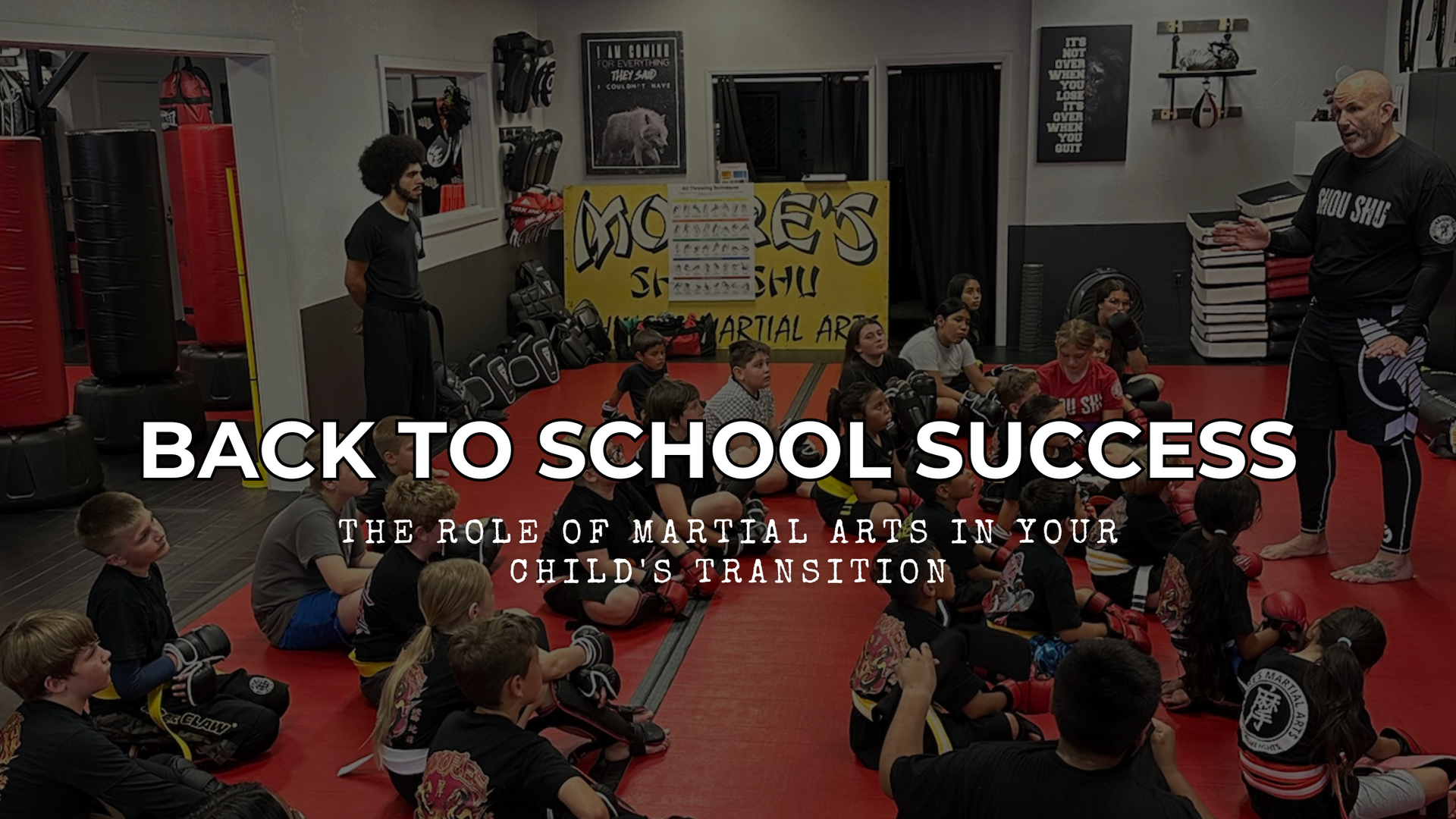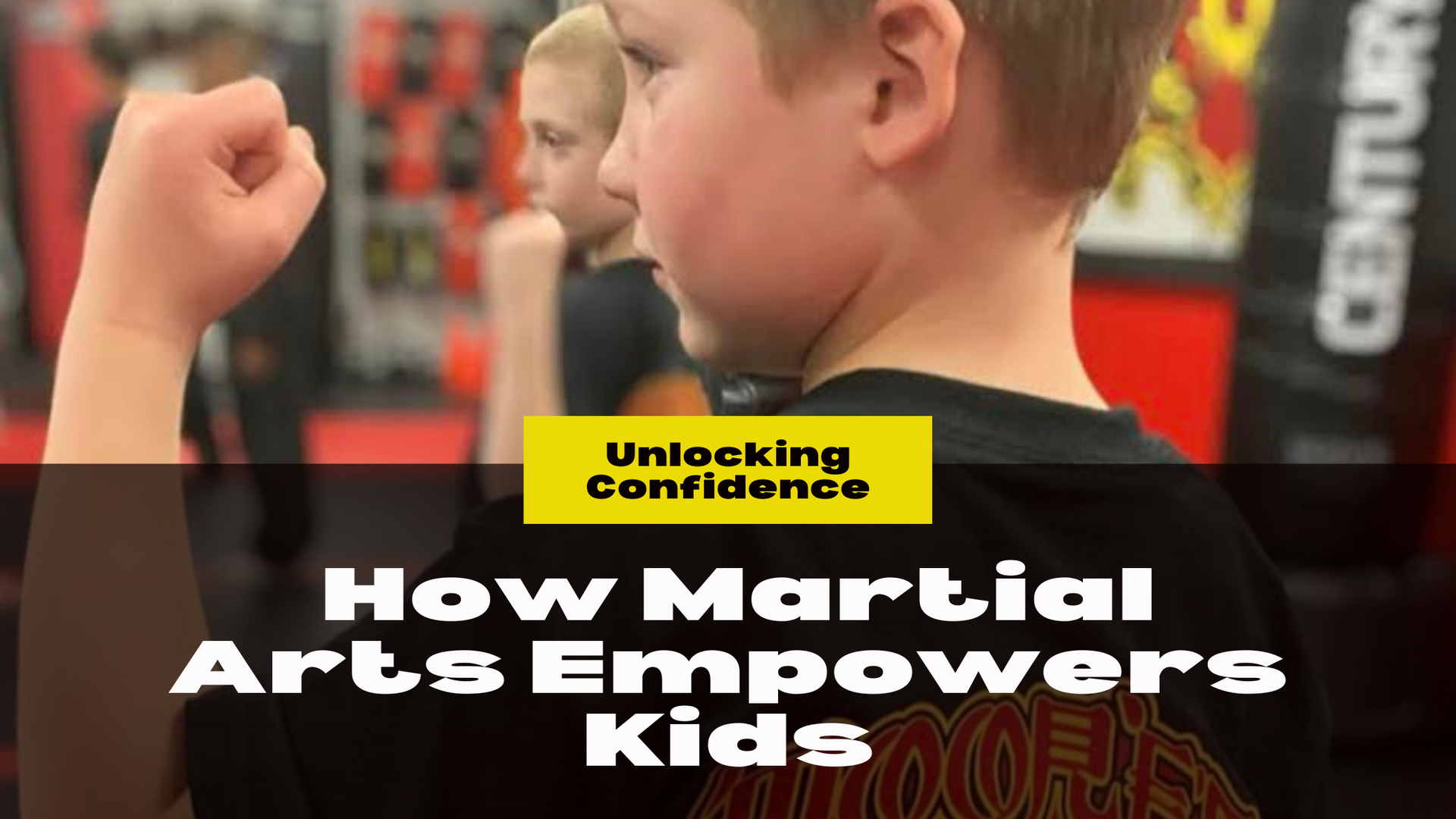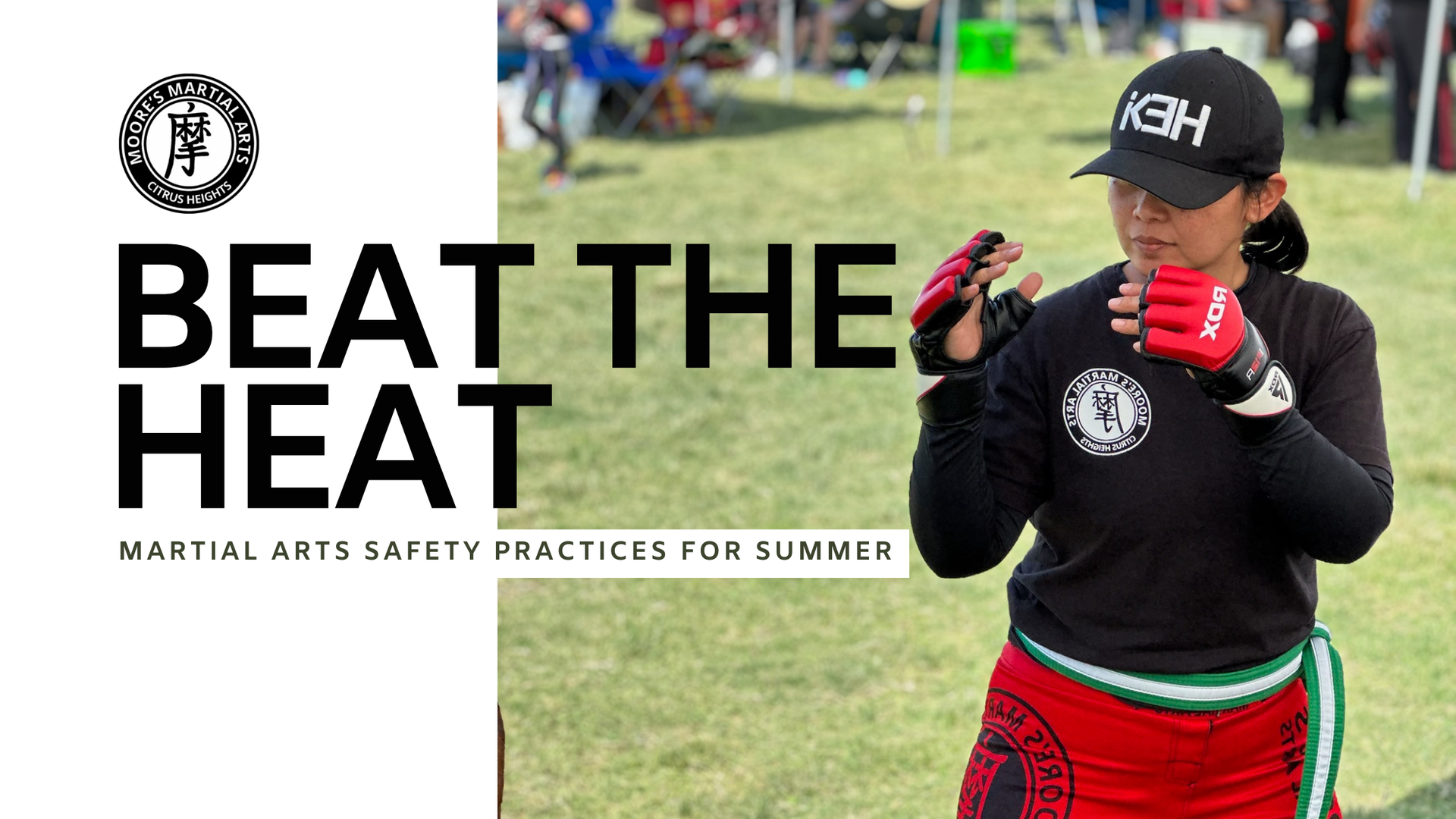Back to School Success: The Role of Martial Arts in Your Child's Transition

Introduction: The Back-to-School Challenge
The back-to-school season often brings a mix of excitement and anxiety for children and parents alike. As summer fades and the school year approaches, children may experience stress about new routines, academic pressures, and social dynamics. Navigating this transition can be challenging, but incorporating martial arts into your child's routine can provide significant support. Martial arts not only foster physical fitness but also promote mental well-being, focus, and confidence, making the back-to-school transition smoother and more successful. In this article, we will explore how martial arts can play a pivotal role in supporting your child's journey back to school.
Building Confidence and Self-Esteem
One of the most significant benefits of martial arts training for children is the boost in confidence and self-esteem. As students learn new skills and progress through different belt levels, they gain a sense of achievement that reinforces their self-worth. This confidence extends beyond the dojo, positively impacting their academic and social life.
Martial arts classes are structured to provide a series of achievable goals. Whether it's mastering a new technique, breaking a board, or successfully sparring with a partner, each accomplishment helps build a child's self-esteem. Instructors play a crucial role by offering encouragement and recognition for each student's efforts and progress. This positive reinforcement helps children believe in their abilities and face new challenges with a resilient mindset.
Moreover, martial arts instill a growth mindset. Children learn that effort and perseverance lead to improvement and success. This mindset is invaluable as they transition back to school, where they might encounter difficult subjects or new social situations. The confidence they gain from martial arts training equips them to tackle these challenges head-on, with a belief in their capability to succeed.
In addition to skill mastery, martial arts emphasize respect and humility. Children learn to respect their instructors, peers, and themselves. This respect fosters a positive self-image and a balanced sense of self-esteem, where children understand their worth while maintaining humility. This balanced self-esteem is crucial for navigating the social intricacies of school life, helping children form healthy relationships and respond to peer pressure with confidence.
In conclusion, the confidence and self-esteem nurtured through martial arts provide a strong foundation for children as they return to school. The skills and mindset developed in martial arts training not only enhance their ability to cope with academic and social pressures but also empower them to thrive in all areas of their lives.
Improving Focus and Discipline
The ability to focus and maintain discipline is essential for academic success and personal growth. Martial arts training significantly enhances these qualities in children, providing them with skills that are transferable to their school environment.
In martial arts, students must pay close attention to their instructors and practice precise movements repeatedly. This practice naturally enhances their ability to concentrate. The structured environment of a martial arts class requires students to listen, observe, and follow instructions carefully, fostering a sense of focus that can be applied to their studies.
Moreover, martial arts instill a strong sense of discipline. The repetition of techniques and the need for consistent practice teach children the importance of perseverance and hard work. This discipline is reflected in their ability to complete homework, study for exams, and stay organized with their school responsibilities. The rigorous training schedules and the commitment required in martial arts translate to a disciplined approach to schoolwork.
Another critical aspect of martial arts is goal-setting. Whether it’s aiming for the next belt or mastering a complex technique, students learn to set and achieve goals systematically. This habit of setting goals, breaking them down into achievable tasks, and working diligently towards them is directly applicable to academic success. Children learn to break down their schoolwork into manageable tasks, set deadlines, and work consistently towards achieving their objectives.
Furthermore, martial arts classes often incorporate meditation and breathing exercises, which help improve mental clarity and reduce stress. These practices enhance a child's ability to focus, especially in high-pressure situations like exams or class presentations. The calmness and centeredness developed through these exercises help children maintain composure and concentration in their academic pursuits.
In summary, the focus and discipline cultivated through martial arts training equip children with invaluable tools for their return to school. These qualities not only enhance their academic performance but also foster a positive attitude towards learning and personal development.
Physical Activity and Mental Well-being
Physical activity is essential for children's overall health, and martial arts provide a comprehensive workout that benefits both body and mind. As children transition back to school, maintaining an active lifestyle can significantly reduce stress and improve their mental well-being.
Martial arts involve a variety of physical exercises, including cardiovascular workouts, strength training, and flexibility exercises. These activities help children build endurance, strength, and agility. Regular physical exercise is known to release endorphins, the body's natural mood lifters, which can alleviate anxiety and stress. For children facing the pressures of returning to school, this natural boost in mood is invaluable.
Moreover, the structured nature of martial arts classes ensures that children get regular, consistent exercise. Unlike unstructured play, martial arts training provides a disciplined approach to physical activity, teaching children the importance of routine and commitment. This structured exercise routine can help children manage their energy levels and maintain a healthy balance between physical activity and rest, which is crucial for their overall well-being.
In addition to physical benefits, martial arts offer significant mental health advantages. The practice of martial arts emphasizes mindfulness and self-awareness. Techniques such as controlled breathing and meditation help children develop a sense of inner calm and focus. These mindfulness practices can be particularly beneficial during stressful school periods, helping children stay centered and composed.
Martial arts also provide a safe outlet for releasing pent-up energy and emotions. The physical exertion involved in training sessions allows children to channel their frustrations and stress into productive activities. This emotional release can lead to improved mood and better emotional regulation, making it easier for children to handle the challenges of school life.
Furthermore, the sense of accomplishment from mastering new skills and advancing through belt levels boosts children's self-esteem and confidence. This positive reinforcement can lead to a more optimistic outlook on school and life in general, reducing the likelihood of stress-related issues.
In conclusion, the physical and mental benefits of martial arts are crucial in supporting children during their back-to-school transition. By promoting physical health, reducing stress, and enhancing mental well-being, martial arts training equips children with the resilience and strength needed to thrive in their academic and personal lives.
Creating a Supportive Community
One of the often-overlooked benefits of martial arts training is the strong sense of community it fosters. This supportive environment can be incredibly beneficial for children as they navigate the challenges of returning to school.
Martial arts schools are more than just places for physical training; they are communities where students of all ages and backgrounds come together to learn and grow. The camaraderie developed in martial arts classes provides children with a sense of belonging. This feeling of being part of a community can be especially comforting during the back-to-school transition, when children may feel anxious or isolated.
In a martial arts setting, students learn the importance of respect, cooperation, and mutual support. These values are instilled from the first day of training and are reinforced through group activities and partner exercises. By working together with their peers, children develop strong social bonds and learn to value teamwork. This sense of unity and support can help alleviate the social pressures that often accompany the return to school.
Instructors play a pivotal role in creating this supportive community. They act as mentors, providing guidance, encouragement, and positive reinforcement. For children, having an instructor who believes in their potential and supports their growth can be a powerful motivator. This mentorship extends beyond the dojo, helping children feel more confident and supported in their academic and personal lives.
Additionally, the friendships formed in martial arts classes can provide a reliable social network. These friendships are built on shared experiences and mutual goals, fostering a deep sense of trust and respect. Having friends who share similar interests can make the back-to-school period less daunting and more enjoyable.
Parents also become part of the martial arts community. Many martial arts schools involve parents in their children’s progress, encouraging them to attend classes, watch demonstrations, and celebrate achievements. This involvement creates a supportive environment where both children and parents feel connected and engaged.
In conclusion, the supportive community found in martial arts schools provides a vital network of social and emotional support for children. This community helps ease the back-to-school transition, ensuring that children feel connected, valued, and empowered to succeed in their academic and personal endeavors.
Conclusion
Incorporating martial arts into your child's routine can significantly ease the transition back to school. The confidence and self-esteem built through martial arts training empower children to face new challenges with a positive mindset. Improved focus and discipline help them excel academically, while the physical activity and mental well-being benefits reduce stress and promote a balanced lifestyle. Moreover, the supportive community found in martial arts schools provides a reliable network of social and emotional support, making the back-to-school period more manageable and enjoyable.
As your child embarks on the new school year, consider the holistic benefits of martial arts. It's not just about physical fitness; it's about fostering a resilient, confident, and well-rounded individual ready to thrive in all areas of life. 🥋✨











Share On: